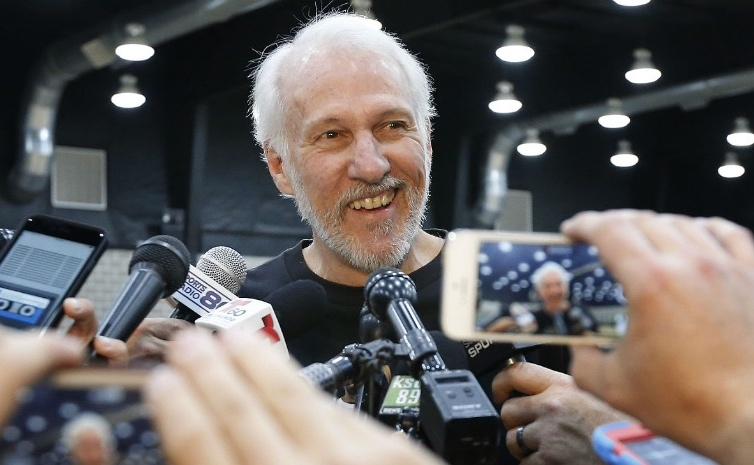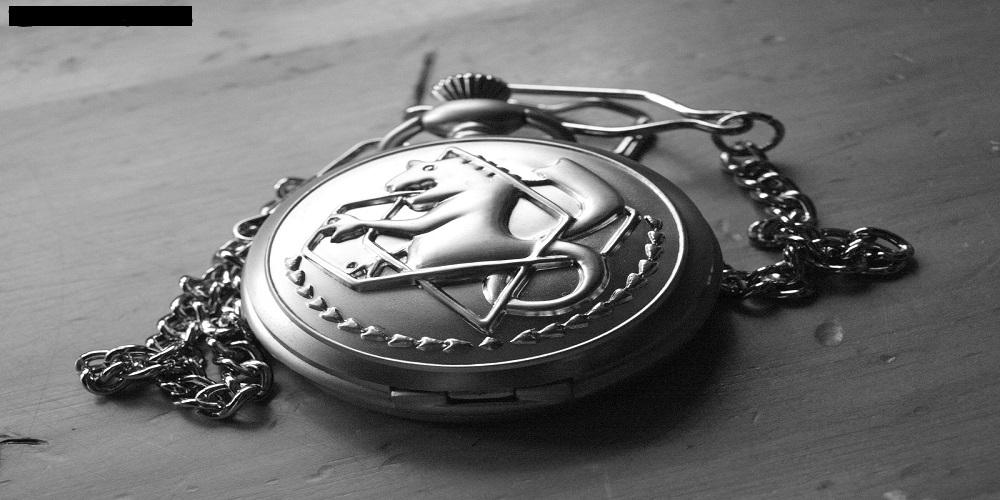Gregg Popovich: from the CIA to the NBA
His figure perfectly defines the word coach. He is the boss, but he is also the teacher, the confidant, the friend, the father, he is everything a coach needs to be. He always finds a way to reach others, to that hidden corner of his mind, where he is able to listen to you. That makes him one of the best coaches and the most special. With 1,150 victories (RS) in his power, third to achieve it before and second in winning percentage, he has three awards for coach of the year.
The image he projects abroad, his discipline and his military past, make the nickname of sergeant fit like a glove. With a sullen character and a serious countenance, it is difficult to see him smile. Cold in the distance and warm in the nearness, his way of being makes him a collector of anecdotes. Without mincing words, he says what he thinks.
Like fine wine, Indiana and Spurs wines get better with time. Pop's hits are the hits of the Alamo and vice versa. A perfect coexistence, which has lasted more than 20 years.
The key is to seek the common good. Take care of each other. To have a good team, it is not necessary to have the best players, it is enough to have those who are the best, letting themselves be trained, who want to learn. Those are winners. A philosophy that he has curdled perfectly in a franchise that is known for winning, closer to the university model than to the professional one. With five titles under their belt since Pop's arrival, this is the 20th season that they will contest the playoffs in a row.
But how does the Popovich-Spurs relationship begin?
From a Serbian father and a mother of Croatian descent, little Greeg grew up in Merrillville, Indiana. A good student from the beginning, he had no problems graduating from Merrillville High School in 1966. Later he would make the jump to the University of the Air Forces (Air Force Academy), where he played basketball for 4 years. Back then you could already see a combative Popovich. Without being a great player, he ended up being the team's captain and top scorer in his last year. But in addition, he was intelligent and restless, a perfect mix that made him a bookworm. His roots did the rest, graduating with a BA in Soviet Studies.
It's 1970 and Pop had five years of military service ahead of him, where he would travel throughout Eastern Europe and the old Soviet Union as part of the Armed Forces team. But the knowledge gained about the Soviet Union, as well as its origins, did not go unnoticed by the CIA. The one from Merrillville, who had intelligence training, came to transport weapons between the border of Iran and Syria. Although his work had nothing to do with that of James Bond, according to Popovich himself, who does not like to talk too much about it.
In his five years of service, he gave him time to learn many things, among which wine occupies a special place. It was in the Napa Valley where he took his first steps in the field. Along with a friend and in some cheap and not very frequented warehouses, he aroused the interest of the coach. Several oenology courses followed and today he can be considered an expert in wines. With over 3,000 bottles in his home cellar, he is one of the owners of A to Z Wineworks. Without a doubt, a good wine can be one of the best ways to break the ice with it.
But it would be in 1973, when he would make a decision that would ultimately mark his future. He gave up running the courts to become an assistant to defensive guru Hank Egan. A know-it-all, as he himself has admitted, devoured books of all kinds. With basketball as a fetish theme, he wanted to find a way to make his way of seeing basketball reach others. His obsession with the orange ball led him to earn a Master's degree in Physical Education and Sports Science while he worked as an assistant at the Air Force Academy.

After six years at Egan's side, the time had come for Popovich to fly solo. The ship he was to pilot would be Pomona-Pitzer, a program that linked two schools. “Popo”, as he was called at the University, he settled in a student dormitory with his wife and his two children. Although the coach's mission would not be easy. With hardly any resources or scholarships to offer, he had to put together a competitive team. But Pomona-Pitzer had chosen the perfect man. His experience in the Air Force had perfected, even more, that gift of knowing how to surround yourself well, of choosing the right people. Although the beginnings were not easy, finishing the first season with a balance of 2-22, confidence in the coach remained intact. It was not a project that needed immediate results, it had to be a long-term job. That confidence, together with the effort and good work of the East Chicago player, would lead him to win the intercollegiate title at Southern, California after 68 years of frustration. He had managed to make a champion project out of a losing project. The work had been impeccable.
But for the current Spurs coach, it's never enough, he wanted more. That desire to improve prompted him to take a sabbatical from Pomona-Pitzer and join Larry Brown as an assistant at Kansas State. An enriching experience that would undoubtedly mark his future. After a year with Brown, the man from Indiana would return to Pomona-Pitzer as he had promised, although this time his stay would not last long. Larry Brown was again the culprit.
1st stage in the Spurs
After assisting him at Kansas State, Larry Brown did not hesitate to call Popovich so that he would once again be his right-hand man on the bench. Of course, this time, the scenario would be very different. Neither more nor less than the NBA.
How to Calculate the Monthly Cost of Renting Office Space for Lease in Austin Tx: One https://t.co/naxPPHbMtf… https://t.co/hqTXEjNUAZ
— Nathan K Smith Fri May 15 18:11:03 +0000 2020
But the impatience of the owner at that time, Red McCombs, tired of the low profitability of the franchise and that the titles did not arrive, decided that the adventure would last only four years. His decision was none other than to nip the "problem" in the bud and fire the entire coaching staff.
The time had come for him to say goodbye to what had been his first experience in the NBA. But it would not be a goodbye, rather a see you later. After two years as Don Nelson's assistant in the Warriors (1992-1994), the Indiana man would return to the Spurs, this time as General Manager.
2nd stage in the Spurs
It was 1994 and the San Antonio franchise was changing hands. Peter Holt was taking control of the San Antonios and he wanted Popovich with him. Time has shown that he was not wrong. As soon as he landed, Pop showed that nonsense is not worth it with him and one of the first things he did was transfer Dennis Rodman. But it would be in 1996 when everything began to take shape. After a poor start to the season, the East Chicago man made the decision to fire then coach Bob Hill and put himself as head coach. A risky decision that did not penetrate the fans and that was accompanied by boos. But if Pop has something left over, it is character. Although that disastrous campaign, he had the good side of him. Being so low in the rankings gave them the opportunity to pick Tim Duncan first in the 1997 draft and mark a turning point. With the arrival of the number one in the draft, which was added to the star David Robinson, they formed the "twin towers".
A fearsome inner game, which would soon begin to bear fruit. That season, they went from not making the playoffs to reaching the Conference Semifinals after achieving a balance of 56 wins and 26 losses. By then you could already see the work of the coach. With a style marked by the men he had been close to, Popovich combined the systematic movement of Bob Spear, along with an excellent defense inherited from Egan and Brown. Building from the defense, with Avery Johnson as his extension inside the game rectangle and the twin towers sowing panic in the paint, the black and silver took the ring in 1999. Three seasons were enough for Popovich to demonstrate what that he was capable But that was only the tip of the iceberg. Those of the Alamo were not going to be something ephemeral, they had come to stay.
In 2003, with Manu Ginobilli (57th pick) and Tony Parker (28th pick) on the team, the Texans did it again. They became NBA champions for the second time in franchise history and with Gregg Popovich winning the coach of the year award. But as they raised the championship trophy, it was time to say goodbye to their star David Robinson. A goodbye that sowed doubts about the future of the franchise. It was a time of transition and Pop had a lot of work ahead of him. Tim Duncan needed some good sidekicks, and picks 28th and 57th in the draft didn't exactly invite optimism. But Popovich gave his first lesson on how to carry out a transition. As he likes best, in silence, without making noise. He had gone from the "twin towers" to the "big three" in the blink of an eye. The French and the Argentine would be in charge of accompanying Duncan on his way to a new title.
A ring that would return to San Antonio in 2005 and 2007, consecrating the Spurs as one of the best franchises. Three titles in five years. Simply amazing. Without being absent from the playoffs, without falling below the 50-win barrier (except in 98/99 due to the lockout), the Spurs have always been there.
We had to wait a little longer to see the Álamo raise their fifth title, although not too long. In 2014 they got what could be the last ring of the “big three”. But you can never say never with Pop. With his third coach of the year title (2003, 2012 and 2014) and with rumors of Duncan and Ginobili retiring flying around the AT&T Center, the coach already had a new transition underway. Once again gestated without anyone noticing. Sacrificing the personal for the collective. Pop had traded one of his favorite players, George Hill, for the 2014 Finals MVP and two-time Defensive Player of the Year, Kawhi Leonard. The transition had already begun and no one had noticed.
In 2015, he put the icing on the cake with the addition of LaMarcus Aldridge in Free Agency. This time the "big three" was changed to the Kawhi-Aldrige binomial.
This course (16/17), now without Tim Duncan in his ranks, Pop has done it again. He has gotten back into a Conference Finals. They are the tenth in the last 20 years and he has 166 games won in the postseason, where he has become a real executioner for Mike D'Antoni. The one from Indiana has a record of 20-6 against the Rockets coach, whom he has already eliminated five times from the playoffs, equaling the record of victories over a coach, which until now was held by Phil Jackson.
In the finals await the almighty Golden State Warriors, who so far seem to have no rival. But with Popovich in front, you can never trust yourself. If anyone is capable of standing up to Steve Kerr's men, those are the "Popo" Spurs.
Despite his age, 68, Gregg Popovich still has some rope left for a while. Starting this summer he will not only be in charge of directing Peter Holt's franchise, but he will also be in charge of taking the reins of his country's national team.
Only he knows the part of the story that remains to be written.









1595